Is homeschooling better than public schooling?
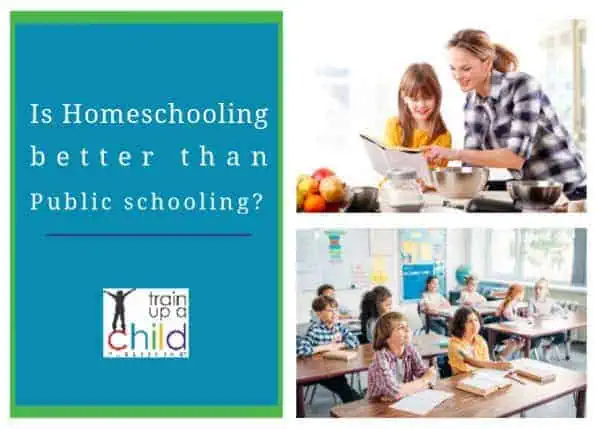
Perhaps your son has struggled all year to keep up the pace at your local public school. Or your high school-aged daughter has found a questionable group of friends and you feel you are losing her.
Or maybe you are just tired of trying to manage virtual-public-school with everything else you have to do. You might be asking yourself: is homeschooling better than public school for my children?
In our family’s experience, homeschooling was better than public or private schooling. And we’ve done all three.
But not every school system is created equally. In fact, the nature of public schooling is like night and day in different parts of the country.
So for many, there may not be just one answer to the question: Is homeschooling better than public schooling?
In fact, a better question might be, which option is better for your kids?
You know them inside and out. You know the character traits, values, and priorities you’ve worked so hard to instill in them.
So… the next question as you consider homeschooling vs. public schooling is: does your public school support those values and priorities?
If it doesn’t, you have a decision to consider.
Is homeschooling better than public schooling for my children?
Perhaps you’ve wondered if homeschooling would be an option for your kids’ education.
Maybe you’ve considered homeschooling, but you don’t think you’re smart enough. Or educated enough. Even after starting homeschooling, many parents struggle with feeling inadequate.
Although don’t we usually feel a little inadequate when we start something new? Especially when the stakes are as high as our children’s education?
You might be surprised to know that parents’ education has little to do with how successful their homeschooled children are, based on standardized testing.
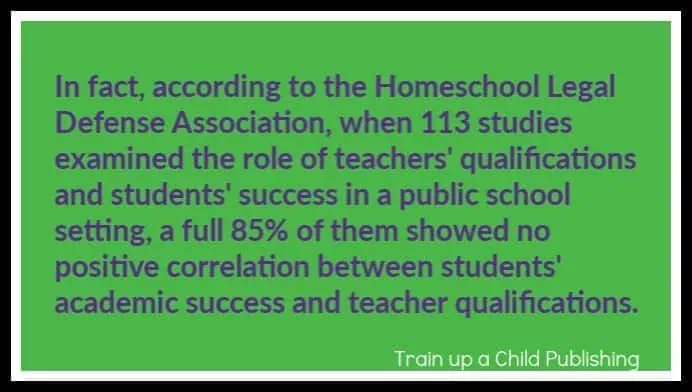
Read the article at the HSLDA site.
Yes, that’s right! 85%!
So in most cases, if you’re committed to teaching your children, day after day… and you’re willing to learn with them, if necessary, you can homeschool successfully.
Does that mean you have to teach every subject yourself? No. There are many options if you are truly uncomfortable teaching a specific subject, or at a particular level. Some of them are:
- trading with another homeschool (or other) parent with a passion for a subject you aren’t too crazy about teaching, while you teach her child a subject you love
- hiring a high school or college student as a tutor
- dual enroll your high school student at a community college student (for simultaneous high school and college credit)
- online classes, available for most ages
- getting together as a group and hiring a former homeschool mom or retired teacher in your community
- forming a history or science co-op with a few other homeschooling families, and trading the teaching with other parents
So please don’t think homeschooling is impossible if you still have occasional nightmares about lab reports. Or research papers. Or calculus.
There are ways of making it work.
Now let’s talk about gathering some information so you can become knowledgeable about homeschooling.
Where to start researching about homeschooling
As you’re considering whether homeschooling is better than public school for your child, there’s some information you’ll need to gather.
Fortunately, there are books to read, people to talk to, and many places online to find information about homeschooling.
Here are some of the questions you might have:
1. What are my state’s homeschooling requirements?
Each state has something to say about homeschooling in that state.
In your state, you might be required to join an accountability group or even report directly to the public school system. Alternatively, your state might allow you to homeschool without any accountability whatsoever.
To find out the homeschooling laws where you live, check with the Home School Legal Defense Association. They’ll tell you what you’re required to do and how to move forward if you decide homeschooling is better than public schooling for your family.
2. Am I qualified to homeschool my children?
As you’ve already read, it’s not at all about your education or teaching qualifications.
You could have three degrees and speak four languages, but that’s not what’s important.
What’s important is that you’re willing to sacrifice daily time and effort homeschooling your kids.
So, that usually means that at least one parent makes homeschooling a priority. Just so you’re prepared for it, often this means financial sacrifice. The homeschooling parent may choose to work part-time instead of full time or decide to work at home instead of outside the home. Or decide not to work at all. Although it is certainly possible to homeschool and work at the same time, particularly if one works at home and part-time.
Mainly, making homeschool a priority means that you’re committed to homeschooling. You don’t let homeschooling just “happen.” You’ll need to research, plan, and study your children to know how they learn best. (And this happens over a period of time, not just before you start homeschooling.)
And you’ll need to learn about various ways of homeschooling and types of homeschool curriculum to see which type fits your children’s learning methods best. (Keep reading to find about the most popular homeschool methodologies.)
It’s not just about your kids and how they learn. You’ll also need to consider yourself. Give some thought to what intrigues you about homeschooling and what might make you crazy.
For example, do you love reading great literature? If so, you might imagine cuddling up on the sofa with your kids, visiting faraway lands, and long-ago places through the books you’ll read. (You’ll love homeschooling if you chose a literature-based curriculum.)
Or perhaps you want to give your children your love of flora and fauna and all things outdoors. (You’ll want to invest in field guides and create nature journals.)
Alternatively, you might be thinking, I hate crafts! I don’t think I can homeschool if it involves glue or glitter. (Sign your kids up for an arts and crafts class, or trade times with a mom who loves crafts and you take her kids on nature walks.)
Whatever it is that you’re afraid of or don’t want to do, it’s okay. You can find a work-around for almost everything.
Consider a history, science, or art homeschool co-op
For many years, we joined with three families and did a history co-op that met every other Thursday for about two hours. During the summers, we Moms planned the topics and time periods we wanted to cover. Then when school started, we took turns teaching.
And we had a break for the other two weeks. It was fantastic. These are the kinds of things we did:
- Craft-loving mom made taught our kids how to paint Greek pots and made torn-paper ‘mosaics’.
- Drama-loving mom taught feudalism in the Middle Ages by having kids role-play peasants, nobles, knights, and a king.
- Game-loving mom had the kids create and play a Jeopardy-like game in order to review what they learned about Ancient Egypt.
We loved it and the kids loved it. They loved being together and they enjoyed the variety of projects and experiences they had with three different moms they knew. And after each history unit, the families came together to celebrate! We listened to reports, ate period-related fare, and viewed everyone’s projects. (In costume, of course.) Some of our most memorable celebrations were Ancient Egypt night, African night, and putting on an Ancient Greek Olympics.
Note that our posts sometimes include affiliate links to books or homeschool tools we’ve used and loved. This doesn’t cost you anything extra, but it might pay us a small commission. Using our affiliate links helps us continue to provide information and help to people considering homeschooling and support homeschool parents. Thank you! For more information, you may read our Privacy Policy.
3. Where do I find more information about homeschooling?
Your library may have a few books on homeschooling. And of course, there’s always Amazon.
Here are some homeschool classics that cover a few different styles and methods:
A little of our story
Many years ago when my husband and I first contemplated homeschooling we attended our first local homeschool convention.
We were totally overwhelmed seeing a hundred plus booths of curriculum vendors and booksellers crowded into a large church gym. I had no idea there were so many materials available for homeschool parents!
We bought How to Homeschool that day and I read it straight through when we got home. Reading about how someone else homeschooled gave me a vision of how homeschooling could work for us. It gave me hope that we could do this. Read more of our family’s story here.
In addition to reading, as you are gathering information, look for others in your church or neighborhood who are homeschooling. Find out why they chose to homeschool and what their homeschooling day is like.
Even better? Ask a homeschooling friend if you can hang out at her house and observe for part of a day. You could even offer to bring lunch. (A sure way to wrangle an invitation.)
There’s nothing like actually seeing homeschooling in action to understand the process better. Before I started homeschooling, I went over to a friend’s who was homeschooling four children. And of course, that was the day a plumber had to come and fix a suddenly-overflowing toilet. My morning was eye-opening, to be sure. And it helped me get a picture of what homeschooling life looked like.
After your visit, make notes. Write down your questions. Ask people you trust for answers.
4. What are the most popular homeschool methods?
One of the first things you’ll notice when you begin researching homeschooling is that homeschooling parents don’t all homeschool the same way. Here are some of the most popular methods:
Charlotte Mason – Based on a very well-known 19th-century teacher from England, this method is characterized by its respect of children as “people.” Habit training and informal nature study begin before children are school-aged. Charlotte Mason adherents teach children using excellent literature (instead of textbooks), teach using shorter lessons, focus on when children are developmentally ready to learn, and also provide time to study art, music and practical crafts.
Unit Studies – With this method, students partake in an in-depth study of a particular theme. Different subjects and learning activities are integrated into the theme in a meaningful, engaging way. The theme could be outer space, a specific animal, a country, a continent, a character trait, chronological history, apples, etc.
Classical – Based on the ancient Greek Trivium, children are divided into three different stages of learning: Grammar, Dialectic, and Rhetoric. Each stage is characterized by a different type of learning based on children’s development. A classical education usually involves learning Latin and has a strong focus on reading and writing, with writing beginning quite early.
School at Home – With this method, parents attempt to create “public school at home.” They often buy a boxed curriculum that includes everything needed for that school year for each child and tries and teach each child separately. And virtual schooling through the public school system isn’t considered homeschooling, in case you wondered.
Delight-directed – Also called child-led homeschooling, this method has structure and often uses curricula to teach the core subjects. But it’s also directed by children’s gifts, talents, and interests. This method can be used all the time or can be used as a break from “regular” homeschooling. And it’s often in any homeschool mom’s interest to allow some delight-directed learning. For example, my son learned how to write a research paper by researching and writing about something he loved learning about: the history of the electric guitar.
Eclectic – Most homeschool parents move to a more eclectic style after homeschooling a number of years. Parents choose the best of one or more methods and combine them in a way that best suits themselves and their children.
Unschooling – Not everyone “counts” unschooling as homeschooling. Adherents to this method say it’s “learning by doing real things,” but not being limited by a curriculum or by someone else’s decision about what a child needs to do when. Unscshoolers feel as though each family has the right to do what it thinks best, rather than being bound by someone else’s “system” and “methods.” Learning is totally directed by the child but supported by the parents.
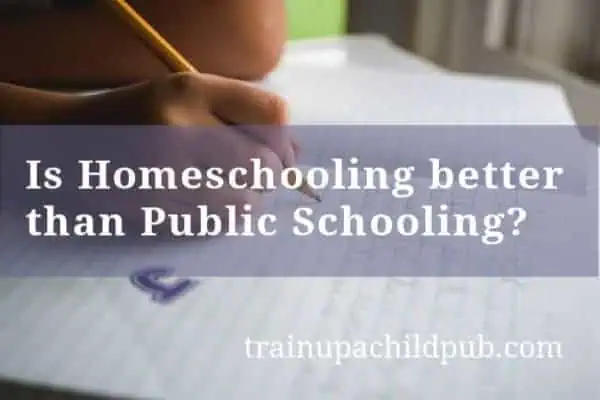
5. Where do I start? Can I afford it?
You can homeschool pretty much on any budget. It’s not necessary to have new, expensive curricula, a dedicated school room with fancy desks, or filing cabinets full of supplies.
But it does help to have a library card, a kitchen or dining room table, and some decent art supplies. We homeschooled using a literature-based curriculum, relying on excellent children’s books to teach history, science, and language arts. So I scoured our church library, Goodwill, and other used bookstores to supplement what was available in our library system.
And for years, I also asked for books and supplies for all gift-giving occasions. If you have several children, plan to homeschool for a while, and have space, it’s helpful to start building a home library. Fines for overdue library book fines can be a killer.
Budget Factors to consider when thinking about homeschooling:
- What’s your budget for homeschooling? (think curriculum, supplies, occasional field trips, any music lessons. etc. Some of this is optional.)
- How many children are you going to be homeschooling?
- Do you have children who are close in age and ability that you may teach together?
Keep in mind that it’s difficult to teach more than two children completely separately. But you usually teach skill-based subjects such as math and language arts separately, unless you have children of similar abilities.
It’s a much better use of time and money to group children when you can for subjects like history, science, and fine arts.
As you read about different homeschooling methods, you’ll find some resonate with you more than others. Also, you’ll find that some methods are less expensive to use than others.
You can use the Charlotte Mason or the Unit Study method to teach more than one student at a time, making curricula less time-intensive and costly than a “school at home” approach, where every child has separate curricula for history, science, grammar, writing, poetry, literature study, math, foreign language, etc.
The Charlotte Mason and Classical methods of learning use “real” books instead of textbooks. You can save money using the library and sharing books with homeschooling friends.
6. How do we make the transition to homeschool from public schooling?
Deschooling, anyone?
You make the transition patiently.
Especially if you decide to pull a child out of public school mid-year, many homeschool veterans suggest spending time “deschooling.”
That might mean just spending a few months reading (language arts), getting outside in nature (science), cooking (math), and doing some practical writing (list-making, letters to Grandma). It means keeping academics a little more “functional” for a while, and less like “school.”
Reading aloud and just talking to your kids about what you’re reading keeps children’s minds active. Measuring and doubling or cutting a recipe in half is practical math, as is counting out the silverware to set the table. Writing a thank you note for a birthday gift counts as writing. You can enjoy many activities while you are ‘deschooling’ while still giving your children practice in the three R’s.
Be patient with yourself and patient with your children. After a month or two (some say much more than that), you can gradually start back with a subject or two at a time using a more academic method.
7. Don’t homeschooling parents and kids need community?
Of course, homeschooling parents and kids need community. (Just like everyone else!) Maybe homeschool moms need it even more.
If you decide to homeschool, please seek out a local homeschooling support group. As I said, you’ll need this and so will your kids.
A support group is different than an accountability group; a support group is for just that – support. Find others who have children your children’s ages and plan to get together at a park or library weekly, if possible.
Additionally, many support groups schedule regular field trips as well as providing opportunities for special interest groups, lessons, and clubs.
Through our local support group, our children participated in karate, Lego Club, Spanish, Drama, tutoring, basketball, volleyball, politics, upper-level math, writing, yearbooks, annual “school” pictures, service projects, a prom, ballroom dancing classes, and graduation ceremonies.
And if you don’t have a convenient support group in your area, there are also many online groups of homeschoolers you can connect with. You can find a group that suits you as there are faith-based groups, groups centered around a particular curriculum or methodology, groups for parents of special needs children…if you can name it, there’s a group for it.
As you hang around others in person or virtually who homeschool, you will be able to ask questions and seek advice when you need it.
And you will need it.
There’s such comfort in knowing that other homeschool moms (usually the mom is the primary homeschool parent, but not always) are having the same struggles and victories as you. And some have homeschooled much longer and able to give you tips to make homeschooling easier and more effective.
You’ll be happy to hear that it’s okay that your daughter doesn’t like grammar or your son can’t sit still. And you’ll be even happier to learn some ways to deal with those things from a more experienced homeschool mom.
And like with anything else new, expect a learning curve. So be encouraged. You might feel ill-equipped at first, but you’ll know so much more in a year than you know now. Both about yourself and about your children!
8. Can’t I find out about homeschooling on the Internet?
Just like everything else, you can find a TON about homeschooling on the Internet. In fact, there. is. so. much. information. out. there.
Almost too much.
And as you are in the information-gathering stage, I invite you to take a deeper dive into my blog. It can keep you busy with many posts about how to competently and confidently homeschool all ages, with sample lessons, planning help, encouragement, great books, and more.
In fact, I believe you can bring your kids’ homeschool education to life while still taking care of your other responsibilities. So in addition to helping you to teach the way your kids’ brains are wired, I help homeschooling moms build good habits so they can have smoothly flowing days and stay on top of everything else that calls their name. Interested?
If you’d like to get my weekly-ish emails full of teaching tips, high-interest lesson plans, book reviews, encouragement, and VIP pricing on our literature-based, Charlotte Mason-inspired, homeschool curriculum written from a Biblical worldview, please click on the graphic below. As a thank you gift, I’ll send you my 10 Best Hacks for Lifegiving Homeschooling without Losing Control of Your Home!
Of course, there’s a lot of information on the interwebs about homeschooling. Just make sure that you do some checking about the worldview of the blogs/curriculum you come across and make sure it aligns with your family’s values. I suggest finding a few blogs to read, but not too many. Otherwise, it’s like drinking out of a fire hydrant! Choose one or two and read faithfully and you’ll learn a ton.
9. But what if my child has special needs?
If your child has special needs, you are often the very best person to be educating him, according to the Homeschool Legal Defense Association.
You can customize your homeschooling to fit your child’s needs. And if your student needs medical care, you’ll be there to give him exactly what he needs when he needs it. Not to mention the freedom from distractions that might be just what your special needs child requires to be able to focus on her school work.
For more information, watch the video below:
Additionally, check the National Challenged Homeschoolers Associated Network (NATHHAN) for more information about homeschooling your special needs child.
For more helpful information about homeschooling, check out this informative guide by MomLovesBest.
Bottom line: if you decide that homeschooling is better than public school for your kids, and you are committed to doing the work of homeschooling, you can homeschool successfully.
So don’t let FEAR keep you from making the decision to homeschool instead of keeping your kids in public school if that’s what you decide is best for your kids and your family.
Your life and schedule might look different than it did before, but you couldn’t invest your time in anything more worthy than your children.
If you have any questions or if I can point you in the direction of further resources, contact me here.
![]()
P.S. Again, if you’d like to get my weekly-ish emails about how to bring your kids’ homeschool education to life while still keeping up with your other responsibilities, let me know here.

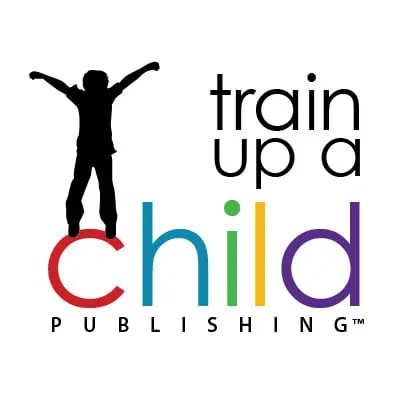
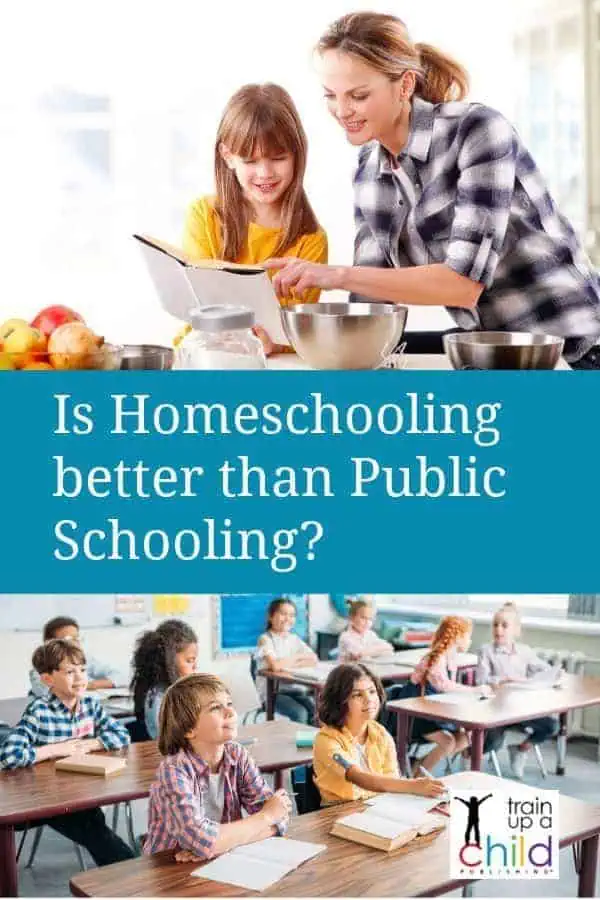
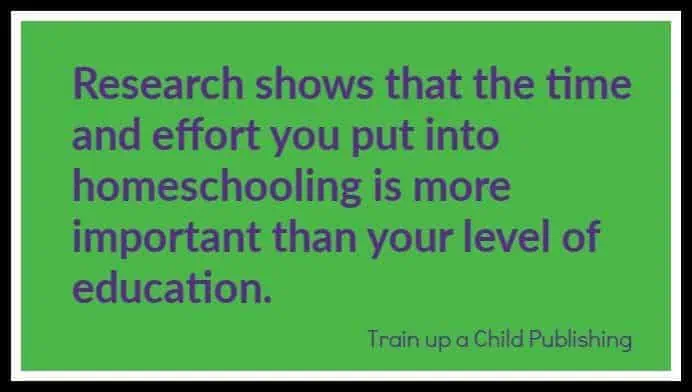
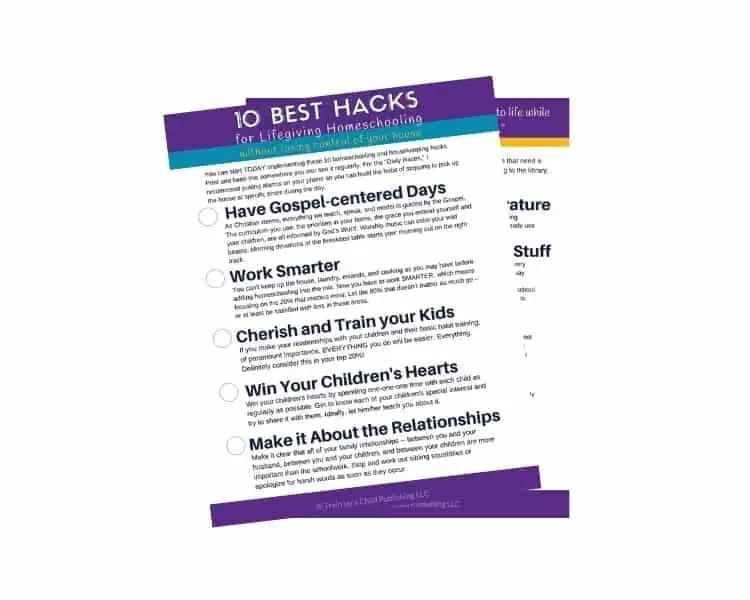
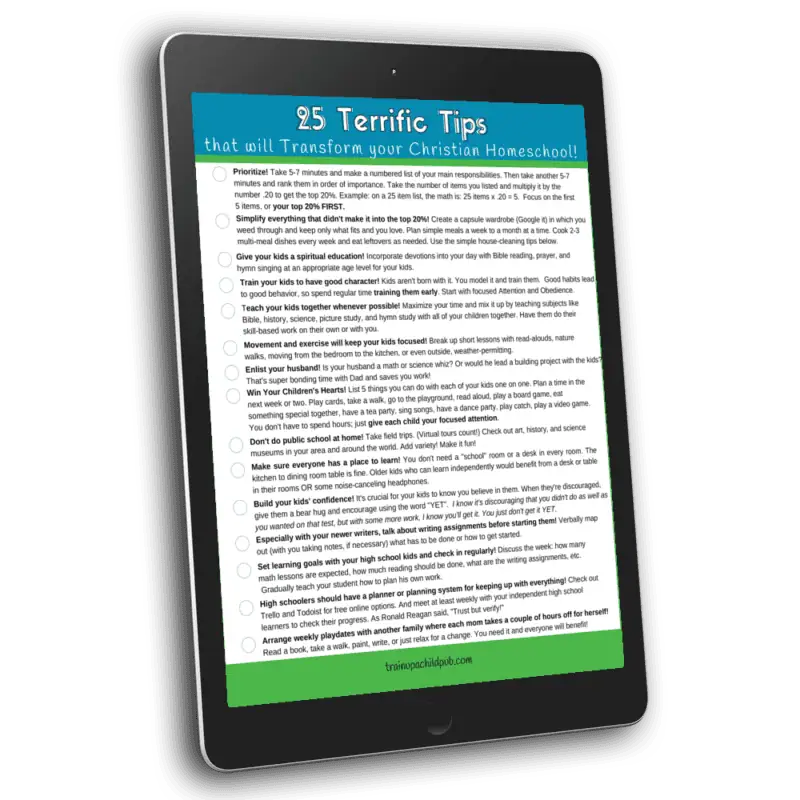
I’m not particularly religious or extremely conservative, but I don’t like the fact that public school has become little more than a system for leftist ideological indoctrination. Home schooling appears to be the only antidote.
I certainly agree that the public school system has an agenda! Thanks for reading, Cary.
Wow, what an incredible resource for parents or others who are interested in homeschooling. You’ve done a everyone a great service by providing this outline and potential questions and concerns to those considering this option.
Thank you, Lisa. I appreciate your kind comment!
I love this! It is a choice every family must make for themselves after weighing all the options. For my family, homeschooling was the best answer as well. I have now graduated one who has been homeschooled all the way through, and have two more to go. You have lots of great info here that I’m sure will be helpful to families who are unsure.
Thank you, Heidi. I agree that every family has to decide what’s best. Congratulations on graduating your first who homeschooled all the way!
YES YES YES! We as homeschooling teachers are best equipped to teach our children. We know our children like no one else. We know how they learn, what they find fun, and what motivates them. Unfortunately, public school teachers are spread too thin and do not have the resources they need to teach adequately.
I think I’m picking up some enthusiasm for this subject, Laurie! I imagine what would be hardest for a public school teacher is so often having to teach to a test and spend so much time on crowd control… as well as being limited in what you can teach and even say in the classroom. Thanks for stopping by!